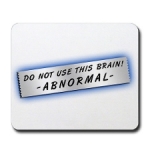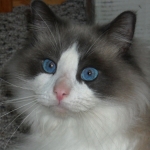So this past month, as my symptoms worsened and my work performance decreased precipitously, I poured over my lab tests and noticed my hematocrit was always very high. Not above "normal", but always right up against the upper limit. That fits with apnea (compensation for low oxygen sats), so I bought a pulse ox and did an overnight recording. I also did an audio recording while I slept. The pulse ox report is below. I don't know how it stacks up with the "typical" sleep apnea sufferer, but it looks bad enough to me to explain my symptoms (and I felt I got a relatively good night's sleep the night I recorded it). I was awake for the first hour or so on the graph.

The audio recording revealed broken snoring, with periods of apnea (up to 15 seconds, but I didn't listen to the entire thing). It wasn't particulary loud snoring, but was more than I had imagined.
Anyway, I don't have all my equipment yet, but should be set by next week. My doc was a little embarrassed that she hadn't sent me for a sleep study long ago, and set me up with an O2 concentrator to tide me over till I get going with the APAP. She wants me to get a study now, of course. But with an APAP and all the available info (including the Devilbiss webinars), I'm going with auto-titration and some trial and error first, for whatever that's worth.
I know this is a fairly common story, but felt like sharing because it's been an exhausting trip. I'm hoping this is the reason for my fatigue and other symptoms, and am very motivated to start therapy! Thank you and best wishes to all.












